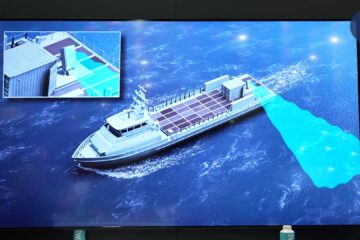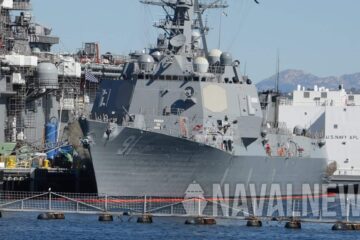Story by C. Todd Lopez / U.S. Department of Defense
It’s true that ice is melting in the Arctic, but this doesn’t mean the U.S. no longer needs icebreaker ships to operate in the region. And right now, the U.S. needs more than what it currently has.
The Navy doesn’t operate icebreaker ships, but the Coast Guard does. According to its website, the Coast Guard currently has only two operational icebreakers in its fleet.
“Strategically, icebreakers provide a persistent presence in a way that’s not met by anything else in the maritime region. Remember, the Arctic is a maritime region, and icebreaking provides you year-round access to be able to go in the region.”
Randy Kee, Senior Advisor for Arctic Security Affairs
With ice melting in the Arctic — but not entirely gone — routes of passage for shipping are opening up there in ways that have not existed before. Additionally, there are ample opportunities for commercial fishing and the mining of minerals. By some estimates, there are as many as 90 billion barrels of oil yet untapped in the Arctic.

U.S. access to the region will require that all nations operating in the Arctic play by internationally established rules. But unless the U.S. can operate freely there — which will surely require the use of icebreakers — it may not be able to participate in the opportunities opening up or protect its interests.
“You need icebreaking to be able to project year-round presence and when it’s [of] your time and choosing,” Kee said during a virtual panel discussion today with the Atlantic Council.
Currently, six new polar icebreakers capable of operating in the Arctic are authorized for bolstering the Coast Guard’s icebreaking fleet, Kee said, adding that the Coast Guard has said they need all six of them. According to a Coast Guard spokesperson, there are no plans right now to retire to either of the Coast Guard’s existing icebreakers.
Russian Federation owns vast number of icebreakers. While the Russians do use some of those icebreakers to maintain a sovereign presence in the Arctic, others are necessary for running logistics operations in the region, where Russian communities dot the coast of the Arctic Ocean. They also use [them] for logistics support to their northern communities, because they don’t have any other way to get the products to those communities.
Randy Kee, Senior Advisor for Arctic Security Affairs






